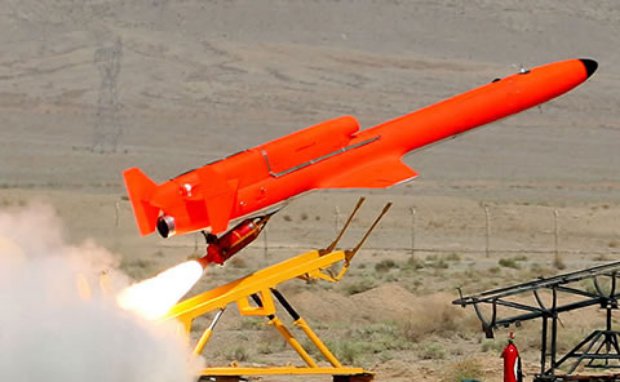Researchers at the Modern Technologies Engineering Collage of Tabriz University developed an unmanned aircraft, called the Shaparak (butterfly), which can fly at 15,000 feet and has a range of 20 km. One of the designers of the aircraft said that the long period of constant flying at high altitudes is one of the main feature of the newly designed machine. ”These types of UAS are able to keep flying for 3 hours and have the capability to increase their length of flight to 20 hours,” the designer said. The small size Shaparak weighs 55kg and enjoys the capability to carry a maximum 10kg load and conduct night flights. The UAS can take off in three seconds, which is another outstanding feature of this aircraft.
In May, an Iranian commander said that the Iranian Army plans to increase the range of its home-made Unmanned Aircraft Systems and also equip its unmanned reconnaissance aircraft with missile-launching systems. Speaking to FNA, Lieutenant Commander of the Iranian Army’s Self-Sufficiency Jihad Rear Admiral Farhad Amiri referred to Iran’s capability in designing and building different types of unmanned aircraft, and explained that UAS are usually used for collecting intelligence and information, wiretapping, photography and shooting footage, but they can also be used for other purposes on the basis of their power and capabilities.
Iranian President Mahmoud Ahmadinejad in August 2010 unveiled the country’s first home-made combat UAS. The Karrar is capable of carrying a military payload to carry out bombing missions against ground targets. It is also capable of flying long distances at a very high speed. Also, Iran in early February 2010, inaugurated the production line of two home-made UAS with bombing and reconnaissance capabilities. The two hi-tech drones named ‘Ra’d’ (Thunder) and ‘Nazir’ (Harbinger) are capable of conducting long-range reconnaissance, patrolling, assault and bombing missions with high precision. Ra’d which is a UAS of choice for assault and bombing missions has the capability to destroy the specified targets with high pinpoint precision.
Experts believe that once the UAS enters the scene of aerial missions, it would enhance the reconnaissance, patrolling and defensive power of the Islamic Republic of Iran’s Armed Force. Iran has recently made good progress in the air industry and has succeeded in gaining the technical know-how for producing stealth aircraft and unmanned aircraft. Iran successfully tested a home-made radar-evading UAS with bombing capabilities in June 2009.
Source: Fars News Agency

